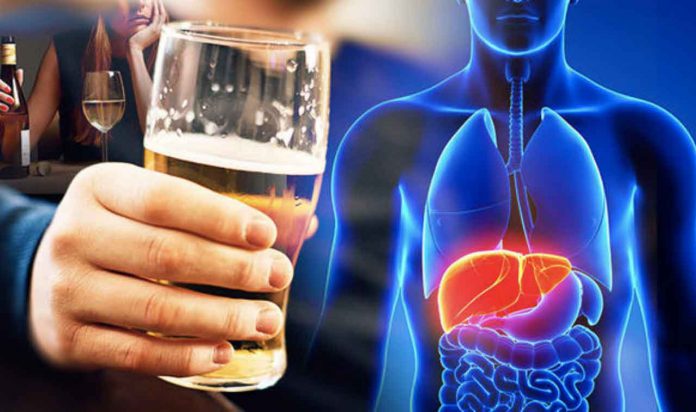Excessive Use of Alcohol is Aging Your Chromesones
THUNDER BAY – LIVING – People who consume more than five large glasses of wine or eight pints of beer have been found to have “older” DNA, according to research scientists at the University of Oxford.
In a study, published this week in Molecular Psychiatry, the researchers reveal that consuming alcohol in excess can wreak havoc on DNA by causing damage to telomeres which are protective caps at the ends of a chromosome.
These repetitive nucleotide sequences, together with associated protein complexes, form a ‘cap’ at the ends of chromosomes, protecting them from damage. As a cell’s replicative machinery cannot completely copy the ends of chromosomes, 50–100 base pairs are lost at each division. Telomere attrition therefore occurs with increasing cellular age. Critically short telomeres trigger cell death or replicative senescence, or occasionally continued division, mutation and genetic aberrations.
Swab tests found the top 40% of drinkers in the study — who had more than 17 units a week — had shorter telomere length caused by alcohol.
The other 60% — who drank less than 17 units — were genetically undamaged.
To contextualize the effect size, in the observational analysis, drinking >29 units (>232 g ethanol, ~ten 250 ml glasses of 14% alcohol by volume (ABV) wine) of alcohol weekly compared to <6 units (~ two 250 ml glass of wine) was equivalent to 1–2 years of age-related change on telomere length. The MR effect sizes were greater − 1 SD higher genetically-predicted log-transformed alcoholic drinks weekly was equivalent to 3 years of aging. Possible explanations for greater associations in MR analyses are that these may capture the cumulative effects of lifetime propensity to drinking, and be subject to less confounding than observational estimates. Significant associations between genetically-predicted alcohol and telomere length were only found in current drinkers, providing support that the only path from the genetic variants to LTL is through alcohol. Furthermore, the strength of evidence for a causal effect of alcohol on telomere length was greater in heavier drinkers. This finding suggests a threshold effect, in that a necessary minimum amount of alcohol consumption is required to damage telomeres. Similar relationships with alcohol have been described for other health outcomes [33]. Additionally, multivariable MR analysis suggested that alcohol’s effects are direct and not mediated or confounded by smoking or physical activity. Participant characteristics UK Biobank
245,354 UKB participants were of European ancestry and had complete data on alcohol intake, telomere length and covariates and were included in the observational analysis (SFig. 1). The majority of participants were current drinkers, with only 3% (n = 8240) reported as never drinkers and 4% (n = 9393) previous drinkers. Never drinkers comprised a higher proportion of females, had fewer educational qualifications, lower smoking rates and lower levels of exercise than current drinkers (Table 1). Older age, male sex, smoking, lower educational qualifications and leucocyte count were independently associated with shorter LTL in both females and males (STable 1). Weekly exercise did not associate with LTL.
The study reports that telomere length is considered an indicator of biological aging. When telomeres become too short, cells can’t divide anymore and may even die — with studies in the past linking shorter telomere lengths with aging-related diseases including Alzheimer’s disease, cancer and coronary artery disease.

